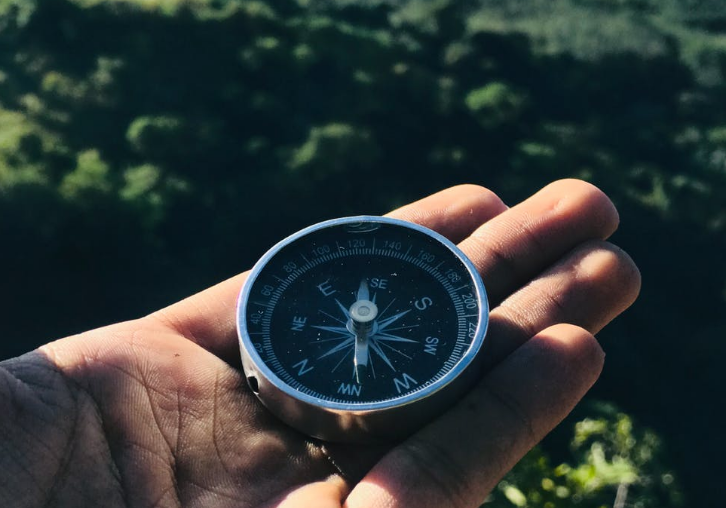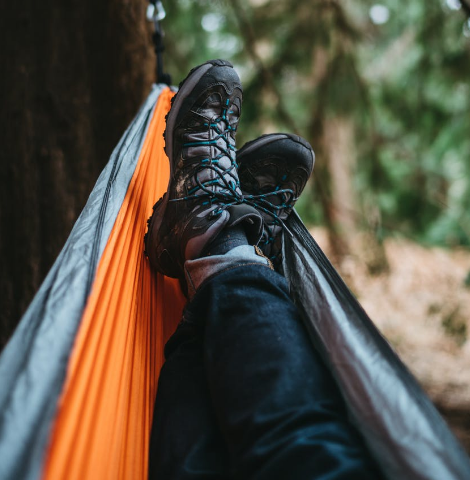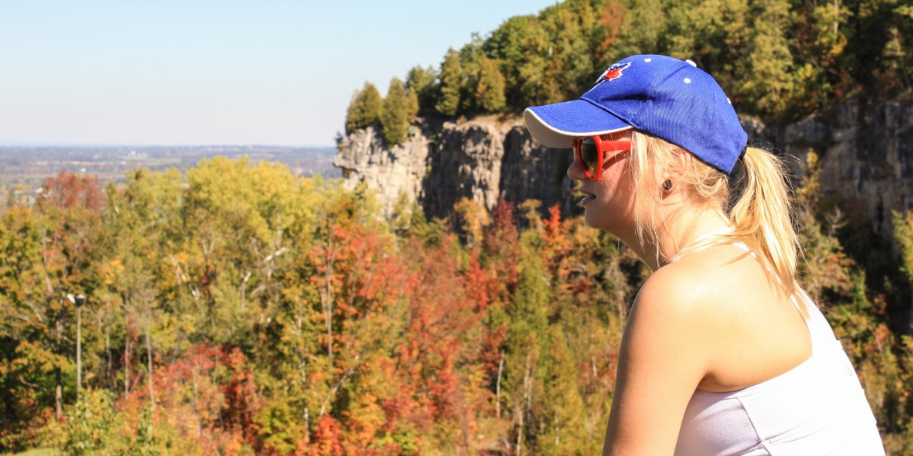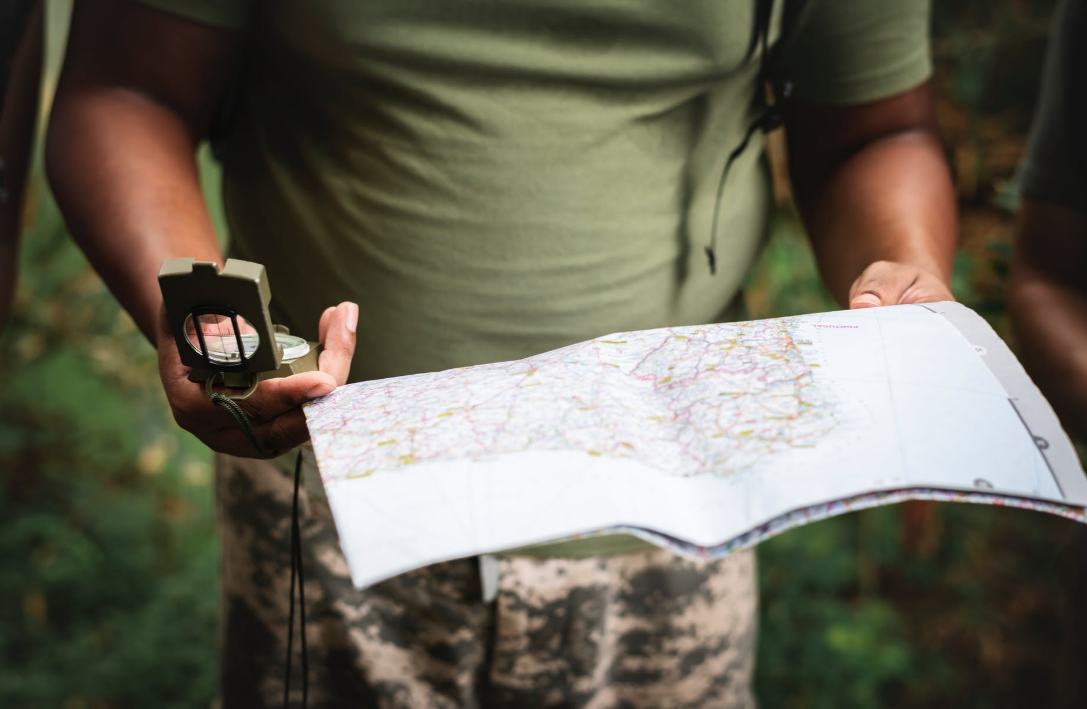Whether you're a seasoned backpacker or you've only just decided to try the adventurous sport of hiking, one thing is sure - knowing the 10 essentials for hiking and backpacking can save you a whole lot in the long run.
The trail could be simple and comfortable, or it could be rocky and dangerous, but an essential ingredient that determines whether you'd have an easy hike are the ones in your backpack. So we'll look into ten absolute essentials for hiking and backpacking in this article.
The amount of supplies you pack largely depends on how far the hike is, how remote the destination is, and what the weather forecast has in store. So, how do you pack all the necessities and still travel light? Sounds like an impossible task, right? It's not.
What To Pack For Hiking
Absolute essentials for hiking are listed below:
1. Gear

It is not a hike without the gear. So you'd need the best hiking backpack, which is probably the most important thing for hiking. No such thing as backpacking without a backpack, is there? Pick a solo backpack that's big enough to hold all your hiking essentials, but not so big that you're tempted to fill up space by overpacking.
Important backpack features that you should look out for are: comfortable padded straps, adjustable hip belt, water-resistant exterior and a padded back panel.
Choose backpacks that have ventilation.
Some packs feature a suspended mesh back panel to combat the sweaty-back syndrome you tend to get with internal frame packs that ride against your back. Also called a “tension-mesh suspension,” this is a trampoline-like design where the frame-supported backpack rides along a few inches away from your back, which instead rests against the highly breathable mesh. Backpacks that have storage pockets sleeping bags, water bottles and other lightweight items are also a huge plus.
Sleeping bag or tent: If you're going on a hike that's longer than a day, you need to pack a sleeping bag or camping tent that will be an easy pop up home whenever you need to set up somewhere.
Trekking poles: A good set of trekking poles would help save your knees from strain, and prevent slips and falls on muddy or rocky terrains. Choose a lightweight pair that is foldable and has a push-button release.
Water Bottle: Water is life. It's important to stay hydrated on a hike so pack a water bottle that is lightweight, easy to pack and simple to drink from.
Also, pack energy bars, candies, jerky, trail mix or other fast food that you can eat on the move. It's best to pack food items that don't require cooking and have a long shelf life.
For longer hikes, you might need to boil or cop some food items, so backpacking cooking far should include a small stove, a kettle or pot and plastic, disposable cutlery.
Portable battery: To reduce the number of items you carry, you would need to save some useful information for the hike on your smartphone. Weather forecasts, itineraries, maps are important items that you cannot survive your hike without. So keep a portable power bank handy so that you don't run out of juice.
2. Hiking footwear

Pack shoes and boots according to the length of your hike, and the topography of the trail. Use maps to find out whether you'd be hiking on rocky, muddy or sandy terrain and pack accordingly.
Hiking shoes: Low-top hiking shoes are designed for shorter day hikes. Choose a pair that has firm grip soles and has breathable fabric, comfortable and lightweight design.
Hiking boots: Choose hiking boots over shoes if you're going on a longer, tougher hike or for times when you'll be carrying a heavier pack. Hiking boots offer more ankle support, as well as additional protection from bites, scrapes, and water.
3. Hiking clothes
Hiking shirts: Opt for a tee-shirt over a tank top to prevent chafing from the backpack straps and get enough fresh air. Wear breathable fabric to prevent build up of sweat and odor.
Hiking jackets: Even in warm weather, pack at least one jacket because it can get significantly chillier especially if you are hiking mountains or summits.
Hiking gloves: These are an essential part of hiking accessories especially on chilly fall hikes. Go for a pair that is lightweight and waterproof.
Hiking socks: Good socks are essential for comfortable hiking. They provide cushioning and warmth, keep your feet dry and prevent chafing and blisters. ALWAYS keep an extra pair. That way, if you go across a stream and your socks get soaked you’ll have a dry pair. Being in wet socks for an extended period of time can really suck.
Hiking pants: You'll need some heavy duty hiking pants in a durable fabric like
khaki or canvas.
Hiking underwear: Look for underwear that's absorbent and odor-resistant. Cotton works best because it prevents chafing and absorbs all the sweat from the hike.
Sunglasses: For sun protection and a shade to enjoy the view at the summit, pack a pair of sunglasses that has SPF and are sturdy and scratch-resistant.

Pack miscellaneous lightweight items such as bug spray, mosquito repellent, bandanas and such others that won't weigh down your backpack.
Now that we've figured out what items you need to pack for a hike, we'll take a quick look at the 10 backpacking essentials, which are like stuff that you need on an extended hike.
The 10 Backpacking Essentials
The original Ten Essentials list was assembled in the 1930s by The Mountaineers, a Seattle-based organization for climbers and outdoor adventurers, to help people be prepared for emergencies in the outdoors. Back then, the hiking packing list included a map, compass, sunglasses and sunscreen, extra clothing, headlamp/flashlight, first-aid supplies, fire starter, matches, knife, and extra food.
However, the list has evolved over time and has become more adaptable to our present time. Here's what it comprises now :
1. Navigation: Contemporary navigation tools include a topographic map, compass, GPS device, altimeter watch, and Personal Locator Beacon. The map would give you foreknowledge of the terrain, and the compass would provide direction if you ever become lost or disoriented on the trail.

Many smart gadgets include electronic compasses, but it's quicker to carry a standard baseplate compass just in case. It won't be a bother because it does not run on batteries and it weighs next to nothing. A GPS device allows you to find your location on a digital map. Use one that is specifically built for outdoor travel- they are rugged and weatherproof.
The altimeter watch uses a barometric sensor to measure air pressure and provide an estimate of your elevation.
This is super useful when you're scaling mountains and other high tops.
The PLB is a kind of satellite messenger that can be used to alert emergency personnel if you need help on the trail. Another smart re reason why you should have them on for safety is that they work in remote locations where cell phones might not have signals.
2. First aid: Cuts, scrapes, bruises, and falls should be prepared for, because they are common incidents on a hiking trail. Pre-packed first aid boxes save you the trouble of guessing what goes in, but you can always add a few items to suit your individual needs. Essential first aid items are adhesive bandages, gauze pads, disinfectant, basic pain medications, and nitrile gloves.
3. Sun protection: Spending long hours outdoors exposes you to ultraviolet rays, which is the primary cause of sunburn, premature aging, and even skin cancer. Wear sunscreen to limit your exposure to the harmful UV rays. Health experts advise choosing a formula that offers a sun protection factor (SPF) of at least 30 for outdoor activity.
4. Shelter
Always carry an emergency shelter with you just in case you get stranded on the trail. They'll also be useful for day trips away from your main camp- so you can stash ultralight tarp, a bivy sack or an emergency space blanket in a hiking daypack.
We think you'll like: Bivy Sack vs Tent | In-depth Comparison for Campers & Hikers
5. Extra food
To be on the safe side, pack at least an extra day’s worth of food in case something causes your trip to go longer than planned (such as an injury or bad weather).
6. Extra water

It is essential to carry enough water for your adventure and have some form of treating water out there. This could be a filter/purifier or a chemical treatment.
7. Extra clothes
The weather can abruptly turn wet, windy or chilly, so it's essential to carry more clothes than required for your trip.
8. Knife and gear repair kit
Knives are useful for gear repair, food preparation, first aid or other emergency needs. In addition to a knife, a small gear repair kit can save you from being stranded in the woods (and the more remote you are, the more critical your kit becomes). Standard items include duct tape, fabric repair tape, zip ties, safety pins, and tent poles.
9. Fire starters
You need to have items for starting and sustaining a fire, like a fire starter. Use a butane lighter or a matchbox sealed in a waterproof container.
Carry elements that can serve as fire starters such as dry tinder, candles, priming paste- making sure to store them in a plastic bag to keep them from getting wet.
10. Headlamp with extra batteries
A headlamp is a perfect light source for hiking because it keeps your hands for all other tasks. Also, endeavor to carry extra batteries for your headlamp.
To make sure that you don't leave anything out, here's a detailed backpacking checklist.
Backpacking Checklist
- Backpacking tent
- Backpack
- Sleeping Bag (including toddler size)
- Sleeping Pad
- Backpacking Stove
- Backpacking Food
- Cookware and Utensils
- Water filter or purifier
- Water Bottles
- Headlamp
- Navigation tools (Map, GPS, Compass, Altimeter, PLB)
- First aid kit
- Hiking boots and/or hiking shoes
- Hiking socks
- Hiking pants
- Hiking shirts
- Raincoat
- Trekking Poles
- Sunglasses
- Beanie and gloves
- Knife and gear repair kit
- Hygiene items
- Insect repellent
Have a great time in the outdoors.
